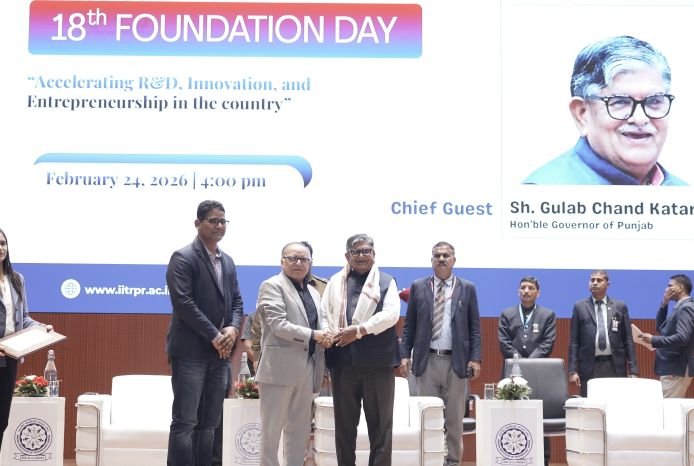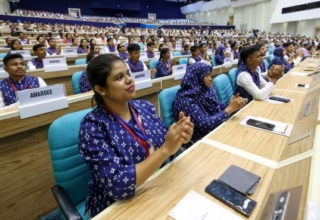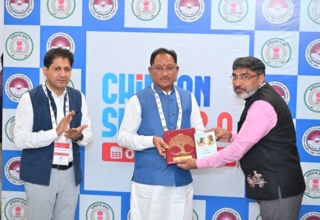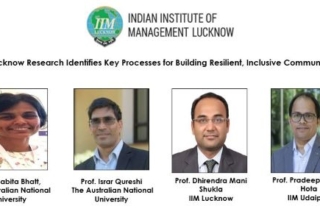
March 31, 2015 marked the fifth anniversary of the Right to Education Act. It was the time to meet the final deadline set under the Act whereby all teachers were to have minimum qualifications. However, like the past two deadlines (on pupil teacher ratio (PTR) and infrastructure provision), the historic law missed this milestone as well. And the government yet again failed to come out with a status report or a statement to make this anniversary appear special writes Autar Nehru.
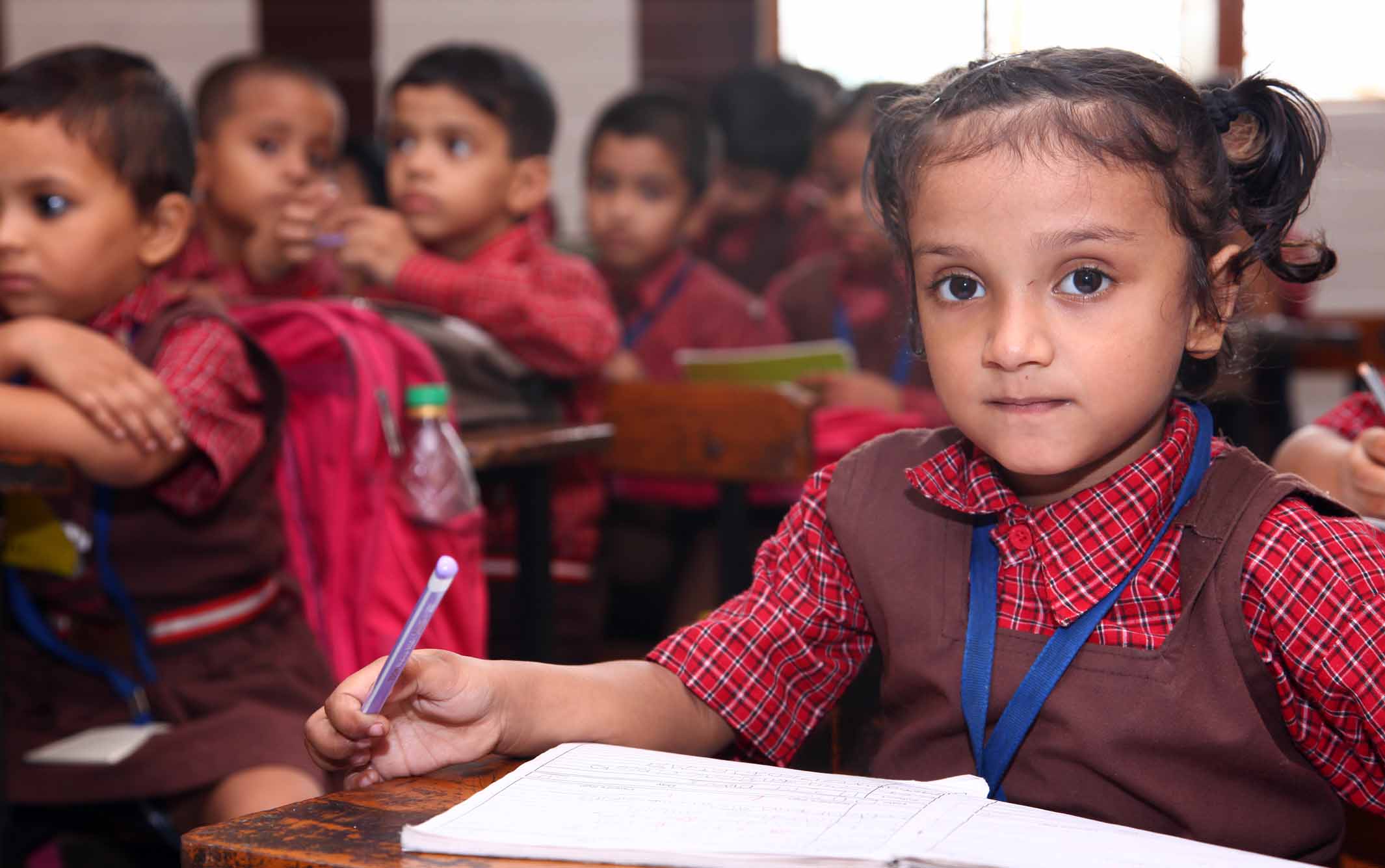 TWO YEARS AGO, WHEN RIGHT to education (RtE) Act turned three, a fear was rife that tens of thousands of budget private schools would be closed down as an overwhelming majority of them didn’t comply with the infrastructure norms provided under the Act. But nothing happened. Not even a single notice was sent to such schools. Labeled as very useful by several, these schools continue to operate in crowded classrooms and in most cases without adequate provision of drinking water, toilets, play grounds, labs or qualified and trained teachers.
TWO YEARS AGO, WHEN RIGHT to education (RtE) Act turned three, a fear was rife that tens of thousands of budget private schools would be closed down as an overwhelming majority of them didn’t comply with the infrastructure norms provided under the Act. But nothing happened. Not even a single notice was sent to such schools. Labeled as very useful by several, these schools continue to operate in crowded classrooms and in most cases without adequate provision of drinking water, toilets, play grounds, labs or qualified and trained teachers.
This March 31, another deadline passed off quietly. This was the final deadline set under the Act where all teachers had to acquire minimum qualifications. We were again left with the reminder about the short fall of teachers and a perched teacher training ecosystem. Some people say 1.2 million teaching positions are vacant and about 80% of all serving teachers without training or qualifications. The usual hullabaloo associated with such a poor record and no trustworthy roadmap was missing around this time probably signaling toning down of aggressive activism on RTE implementation or a fatigue syndrome.. However, the debate of past one decade and unmet expectations of last five years, has also yielded some positives in terms of people acknowledging that systemic change doesn’t come easy and quickly and needs wide and deep research studies to understand the real bottlenecks as well as appropriate design delivery. “Research can play an important role in studying complex policy issue like this and play an equally important role in facilitating implementation,” says Dr Ashish Nanda, director IIM-A.
At the same time, it is not that controversies or frictions have died down. In fact, one of the far reaching social interventions envisioned under the section 16 of the RTE Act whereby no child is detained until class VIII has become the most talking point about the law. Several states have joined the chorus seeking removal of the section 16 through amendment. At the March 22 meeting of the education ministers of the states called for deliberations on New Education Policy, a number of states complained about the ‘controversial’ clause (no-detention policy) which is being blamed for poor outcomes in students, student absenteeism, decrease in academic standards and inability of students to cope with studies and examinations after class VIII.
Section 16 of the Right to Education Act, 2009 which says, “No child admitted in a school shall be held back in any class or expelled from school till the completion of elementary education,” has been a source of contention from the beginning. The matter was raised in Central Advisory Board of Education (CABE) meeting in June 2012 by several states. After this a CABE sub-committee headed by then Haryana education minister Geetal Bhukkal was constituted, which recommended a review. The ministry of HRD informed the Lok Sabha in response to a parliamentary question in last winter session (December 2014) that the committee has also recommended a review of a no-detention policy and its implementation in a phased manner. Delhi’s education minister Manish Sisodia, who is also the deputy chief minister last month wrote to union HRD minister suggesting a middle path whereby no detention will be confined till class III. “The policy of not “failing” any student up to class VIII, is leading to lack of accountability among teachers in government schools,” he said adding that the implementation of the no-detention policy without any prior preparation has turned out to be a mere problem and students are reaching higher classes without proper understanding and are encountering severe problems in coping with the tough syllabus. BJP-ruled states like Rajasthan, Madhya Pradesh, Chhattisgarh, Goa have openly called for junking the policy.
Seeing a growing tide against the removal or dilution of the clause (sec 16), seasoned educationists and activists are also decided on defending the policy. At the fifth edition of the National Stock Taking convention on status of Implementation of RTE Act, 2009 by the RTE Forum (a national lobbying & advocacy group on RTE implementation comprising of a loose network of 10,000 activists and voluntary groups from across India) held on March 25 in New Delhi, speakers lashed at critics of no detention policy under the Act saying that instilling fear of examination in children is no remedy for failure of addressing systemic reforms in school education. “It is a war against children; people want to traumatize them with lash of exams. Five years is nothing in the history of an Act, we should give it at least another 10-15 years before passing on judgment over the RTE Act or think of new law. The law has a social history and has to be saved because it has started hurting people who have traditionally suppressed mass education, which is passing through a difficult and in fact a convulsionary phase,” said Prof Krishna Kumar, former director NCERT, also a professor of education himself. Questioning the ground for seeking repeal of the section 16, former NCPCR chairperson and child rights activist, Prof Shantha Sinha wonders how retaining a child in the same class is going to improve outcome?
Shouldn’t the system guarantee learning? How are children or teachers to be blamed? According to Prof Poonam Batra, professor of education at Delhi University, the definition of quality for education has become synonymous with what market thinks as quality, that is performance. “Quality is inbuilt in education; we have forgotten what education is. Classroom processes have been marginalized and have become unfavorable for children; there is capability deprivation of teachers. Education today is cut & paste. An organization like CBSE could say that teachers don’t need to set question papers? If teachers are not involved, is not part of system then what? You can buy CCE, lesson plans and call its mugging up ‘quality’?”
And how come ASER reports have become bible of quality education? “Education is an intervention and not a reflection, it is about new thinking, new knowledge, it has a transformative role. But as of now genuine expectorations’ have been sidelined, training has been ritualized. There is need to revive the debate on what is education, and see schools as institutions and not assembly line shops,” adds Prof Vinay Kant of Patna University, Bihar.
Schools are necessarily underfunded. The vicious propaganda about government schools is unfounded, look at central schools. Praveen Jha, Professor of Economics at JNU, who has done a study in which he found that provision of amenities like drinking water etc were indeed related to enhanced reading and mathematical capabilities in school children feels that India, which spends only $225 per child ( India is in the bottom countries like Magnolia, Bangladesh, Nepal, Bhutan, etc) as against $ 7000-11000 in developed countries and even lower than what Sri Lanka spends ($325), the inadequacy of the financial investment in education has to be looked into to improve the outcomes. According to him unit cost allocations on education will greatly improve the delivery environment.
Experts say any debate on education, its success or failure must be seen in context. “We should rather do a fair study to know whether creating a parallel structure under SSA by marginalizing DIETS and (IASEs) Institutes of Advanced Studies during 90s in Education have done any good service to education and teachers in India,” they suggest. “Why individual focus on teacher today. He has become a courier. Why is there no focus on system? Supreme Court and Justice Verma Committee had to tell us what to do. Why is 90% of teacher education still under private providers, why the suggestion of converting degree colleges into evening teacher training colleges isn’t being heeded?” wonders Prof Batra.
Going a step further, RC Dabas, president of Delhi primary education lists factors for poor outcomes in government schools, which are functioning in the shadow of glittering private school, “admissions are happening in our schools all the time, books are not provided on time and mostly arrive in mid session, absenteeism of students, non-teaching activities including census of animals in some states, we report in DISE data presence of library yes, but what is it an almirah with a few dozen old books, the development funds are released towards end of financial year, so we can’t undertake any infrastructural improvement or procurement, teacher posts continue to be and no teacher has been recruited in Delhi in last five years. So how are we going to deliver?”
The poor implementation of RTE Act over the last five years is in itself a big issue, which may have a direct bearing on the provisions, entitlements and outcomes. According to Prof Shantha Sinha, quality is overall development. “Remember we are dealing with first generation learners in a majority of cases. No teacher should be labeled as failure and we need to develop a capacity where teachers are listened to by higher ups for classroom and learning/teaching process improvements.”
Multiple issues confront children and there is conflict between NCF 2005 and policy programs, poetry and arts is being sidelined, which need to be aligned. “Children must be taught in the language they can communicate and understand. Language is a huge issue. In order to retain and develop academics in children, they should be allowed to use they language they know. In any case, they will pick up other languages later on,” says Prof Minati Panda of Jawaharlal Nehru University.
The poor understanding and coordination of child and education issues at government level may be another factor contributing to quality issues. While education comes under ministry of HRD, early childhood education is under ministry of Women & Child Development. A longitudinal study by Centre for Early Childhood Education & Development (CECED), Ambedkar University, Delhi has found that 75% of children in pre-schooling age are going to some form of pre-schooling in the country with 55% in private facilities. “0-6 is the age where most of the brain development takes place so appropriate learning ways and concepts are critical in making child ready for school. But unfortunately in absence of a framework, referential curriculum and pedagogic standardization is missing,” says Dr Venita Kaul, director CECED. In fact, Devika Singh, co-founder of Mobile Creches feels Right to Education should be reconceptualized for this age group. Similarly, several activists feel that the other extreme 14-18 year bracket must also be brought under the Act. Citing child marriages and trafficking especially among girls in hinter land as a valid reason for the argument, grassroots activists citing feedback of girl students say that continuing education apart from serving socio-economic developmental objectives of crucial secondary education, would also help girls escape from child marriage. According to Komal Ganotra, director (policy & research) CRY, “the current skill development paradigm of three-month courses leaves no room for vertical development of children. This is another form of child labor and involves issue of inequality and injustice. Bringing secondary education in RTE fold will supply necessary provisions.”
“The RTE Forum expresses its deep concern over the failure of the government to deliver on its commitment towards the right to education in India. March 31, 2015 marks the end of the five year time-frame that was given to the government by the Parliament to implement all the norms and standards of the RTE Act, 2009 and especially those pertaining to the teachers. Even after five years, less than 10% of all the government schools comply with all the norms and standards of the Act. There is presently a shortage of more than 1.2 million trained and qualified teachers in India. The training institutes for teachers continue to be neglected and face major staff shortage. Heavy cuts in the school education budget shows that the government is least bothered about the unsatisfactory implementation of the RTE Act. Any attempt to review or change the provisions of the RTE Act, 2009 would lead to the dilution of the spirit of the fundamental right to education,” warns Ambarish Rai, convener of the Right to Education (RTE) Forum.
Fifth year of RTE, which also coincides with formulation of a new national education policy, provides a conducive opportunity to overhaul our thinking on education. Already, the National Council on Teacher Education (NCTE) under directions of Supreme Court monitoring committee has promised to bring in reforms in teacher education from this year. A new curriculum has been prepared which will be taught from this academic year, 16 course programs, also diploma in pre-school teaching has been added in addition to including it in degree programs and making B Ed and M Ed of two year duration. The teachers themselves are also beginning to figure out what is wrong with them. A set of guidelines have been prepared and circulated by one of the teacher associations to proactively engage teaches as a stake holders in improving education system. Lack of awareness is a huge issue still and even officials are largely under educated on RTE provisions and calculations.
According to a report by the Indian Institute of Management-Ahmadabad, Central Square Foundation, Accountability Initiative and Vidhi Centre for Legal Policy, that examined the implementation on the Section 12(1)(c) of the Right to Education (RTE) Act that mandates 25 percent reservation for children from economically and socially disadvantaged sections in private unaided non-minority schools, only 29% (21 lakh out of 84 lakh) seats were filled in 2013-14. Even after 5 years of RTE, State rules and notifications on the provision for 25 percent reservation for disadvantaged students in private schools not clear. Only 29% of 21 lakh seats reserved for disadvantaged students under RTE filled across India with Madhya Pradesh and Rajasthan account for half of the national fill rate. The second edition of the State of the Nation: RTE Section 12(1)(c)’ a research report to assess implementation of RTE 25 percent reservation across Indian states was released on March 24 in New Delhi. It says that in 2013-14, out of 2.06 lakh private unaided schools with Class I, only about 45,000 schools reported enrolling students under Section 12(1)(c). States such as Andhra Pradesh (0.1%), Odisha (1%) and Uttar Pradesh (2%) have reported the lowest school participation rate, whereas states such as Rajasthan (65%), Delhi (48%) and Uttarakhand (43%) rank among states with the highest school participation rate under this provision. Ashish Dhawan, Founder and CEO, Central Square Foundation said, “The number of students who have secured admission in private schools under the 25 percent reservation provision is extremely low. Even after 5 years of RTE, State rules and notifications of this provision are not clearly defined, this is leading to ineffective implementation across states. If implemented effectively, this policy can provide opportunities to 1.6 crore children across India.” The report provides a comparison of fill-rate of RTE 25% quota seats across private schools in 28 states, based on the analysis of District Information System for Education (DISE) 2013-14 data. The analysis of seat fill rate reveals huge variance across states. In Madhya Pradesh, the fill rate was as high as 88% whereas in Andhra Pradesh (prior to the division of the state into Andhra Pradesh and Telangana), it was as low as 0.2%. The report also highlights innovative practices that can be adopted to strengthen implementation of this provision across states. For instance, there is an opportunity to learn from Maharashtra that piloted an online centralised lottery system for admissions under this provision. Rajasthan has implemented a complete admission to reimbursement management system for making the process more efficient.
Talking about low school participation rates, Yamini Aiyar, Director, Accountabilility Initiative (Centre for Policy Research) said, “There is no clarity on how the reimbursement amount is calculated. In many instances, schools and parents are unclear if the fee waiver applies only to the school tuition or includes expenses such as books, stationery and uniform. Private schools also face the problem of delay in receipt of reimbursement from the government. In our report, we have identified important gaps in transparency and availability of information related to seat availability, admissions and reimbursement. Clarity on methodology and on elements covered in reimbursement calculations, reliable and easily accessible data would help make the government and private schools more accountable.”
The report has also made some key recommendations for immediate and necessary steps that can improve the implementation and impact of this section. This includes addressing gaps in sate rules and notifications and importantly setting up of an RTE commission besides reversal of minority school exemption and reliable data collection practices. “From a legal standpoint, effective implementation of this provision requires that the State RTE rules and notifications clearly provide information to different stakeholders to access the law, expand reimbursement to cover pre-primary classes, establish an independent commission to address grievances, prevent disadvantaged children from dropping out and remove blanket exemptions for minority schools,” says Dr. Arghya Sengupta, Founder and Research Director, Vidhi Centre for Legal Policy.
A huge embarrassment for government has been absence of a chairperson to all important National Commission for Protection of Child Rights (NCPCR), the apex body to implement, monitor RTE Act and to redress related complaints. Down the line, there are half a dozen states that down has a state level body or SCPCR. In this context and citing the lack of teeth for penal action for violators, the CSF report cited above has called for instituting an independent RTE Commissioner with quasi-judicial powers to implement the Act.
In the end, the 5th anniversary of RTE Act has done well to fuel critical thinking on the issues confronting the implementation of this very important social and child-centric legislation. Only a national commitment and political will help realize its noble objectives.




